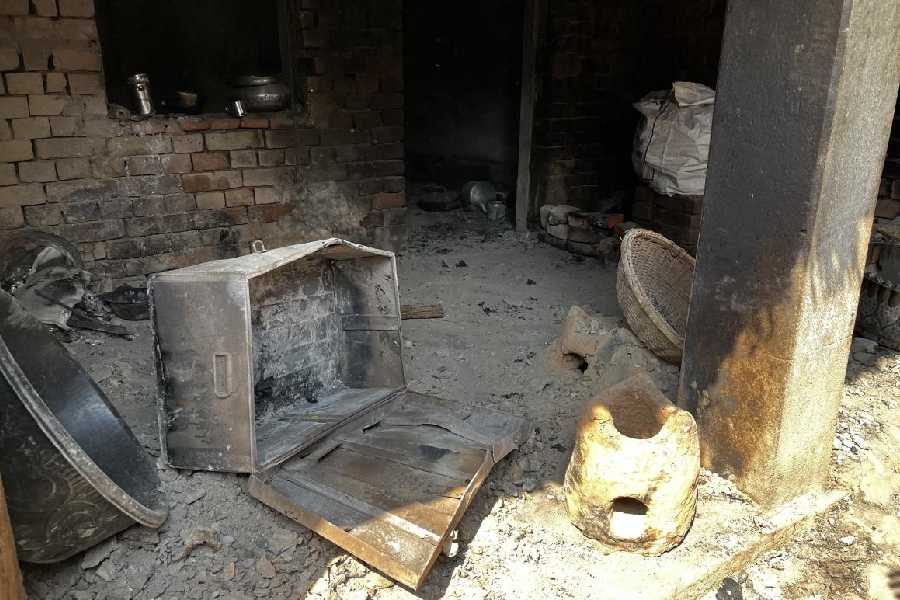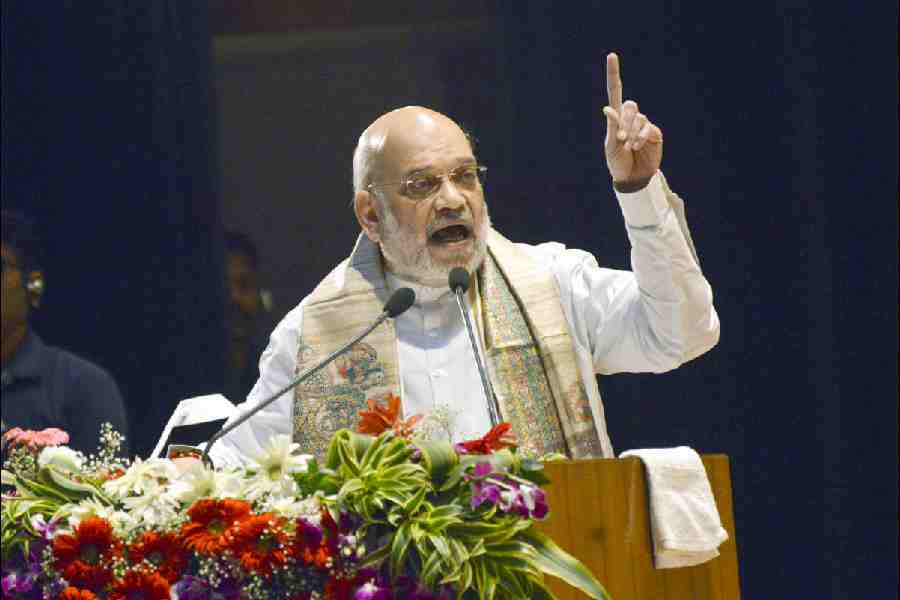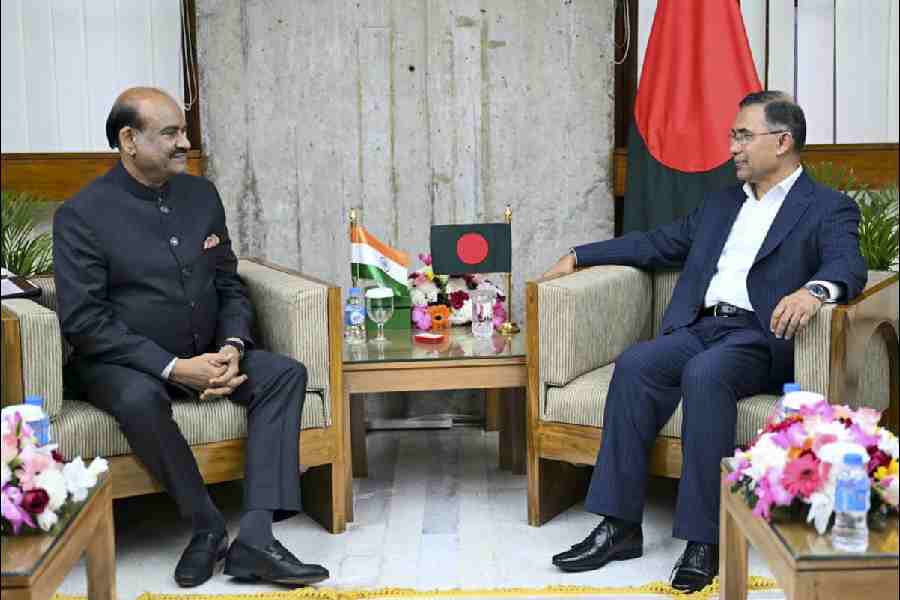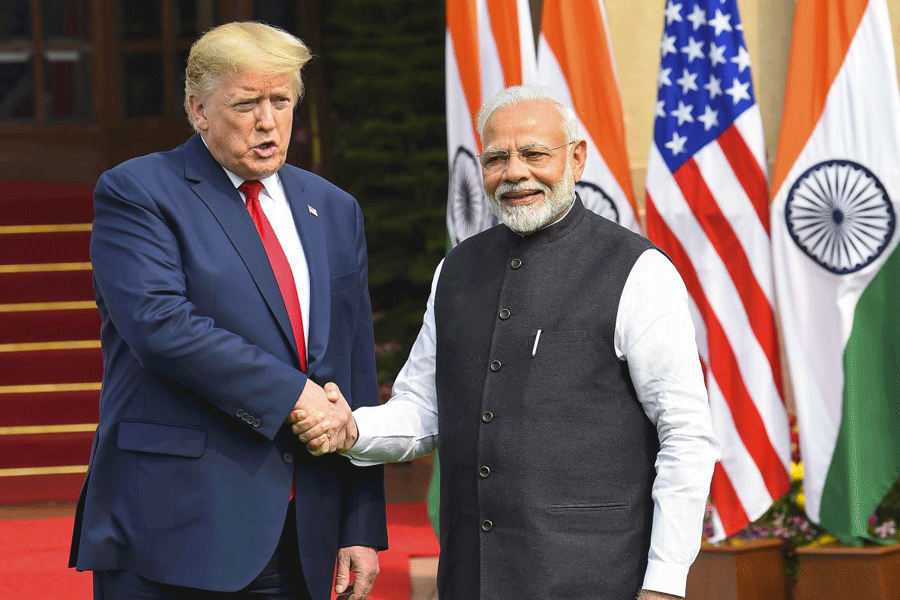A PIL in the Supreme Court has sought a court-monitored probe by a special investigation team (SIT) into the waqf act-related violence in Bengal and a direction to the state and central governments to prevent further escalation of the situation.
The petition filed by advocate Shashank Shekhar Jha has blamed “provocative” statements by chief minister Mamata Banerjee and other Trinamool ministers, announcing that they would not allow the waqf act to be implemented in Bengal, for the violence.
“Several ministers and spokespersons for the ruling party in Bengal have made provocative statements, which are directly contributing to the growing chaos and violence. That the ongoing incidents suggest possible complicity of the state machinery, which is a gross violation of the right to life under Article 21 of the Constitution.... The situation has become so dire that members of the Hindu community are being forced to flee their towns and homes in order to safeguard their lives and protect their families,” Jha said in the PIL.
The top court will reopen on Tuesday after a five-day recess. It is likely to hear a batch of petitions challenging the recent amendments to the waqf law on Wednesday.
In his petition, Jha said this was not the first time that Bengal was witnessing such “targeted” communal and political violence and recalled a similar situation in the aftermath of the 2021 Assembly election results.
“These targeted attacks on the Hindu community violate their fundamental rights under the Constitution and go against the principle of secularism,” the petition said.
The petition sought a court-monitored SIT probe into the violence, an explanation from the Bengal government and the Centre on the failure of the law-and-order machinery and direct compensation and rehabilitation for the victims.
It also sought the protection of the life and liberty of the victims and steps to check further escalation of violence.
According to the petitioner, the right to life guaranteed by Article 21 of the Constitution “has been completely violated through the violence, exodus and riot-like situation in the state of West Bengal after elections”.
The petitioner sought action against the rioters who had unleashed the violence, resulting in “people at large getting assaulted, murdered, their property being destroyed, religious structures of Hindus being vandalised”. He also drew attention to the forced “exodus” of people from Bengal because of “political affiliations and religious identities”.
“The said incidents are violating the Right to Equality under Article 14, Freedom of Speech and Expression under Article 19, Right to Life under Article 21, freedom of conscience and the right to freely profess, practise and propagate religion under Article 25 of the Indian Constitution,” the PIL stated.
Highlighting the “absolute failure of law and order in the state”, the plea said the unrest led to multiple deaths, injuries and widespread damage to public and private property.
“It also led to... the exodus of more than 500 Hindus from the region,” the petition claimed, adding: “The main target (of the violence) has been the Hindu families and numerous Hindu families
are now forced to flee from Murshidabad and other parts of Bengal in order to
save themselves.”
The petitioner also referred to the reported threat by Trinamool Congress minister Siddiqullah Chowdhury to bring Bengal to a standstill if the waqf act was not withdrawn. Chowdhury also warned of large-scale traffic disruptions by mobilising 10,000 people at 50 locations, the petitioner submitted.
It referred to an alleged warning issued by Trinamool Congress MP Bapi Halder at a public meeting in South 24-Parganas to “gouge out eyes and break hands” of those trying to snatch waqf properties.











